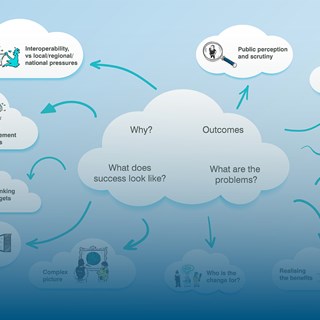Rigour in programmes, projects and portfolios is about discipline in principles, processes and structure. The domain can be found in many people, from individuals (self), teams, and whole organisations. It depends on the culture and is often driven by external political, legal or societal norms.
This discipline can often be perceived as the antithesis of flexibility and agility when a high tempo is required. A high tempo can effectively address dynamic project environments – the rate at that changes can be made within a project or the frequency that the project reflects plans and adjusts according to the results of the preceding interval.
This short paper reviews some of the underlying issues. Briefly, it explores a few examples of approaches that can be used to address the challenges, drawing on lessons from existing programmes. It is part of a developing series that explores different tensions and aims to provoke thought, debate and consideration when designing or executing programmes and projects.






